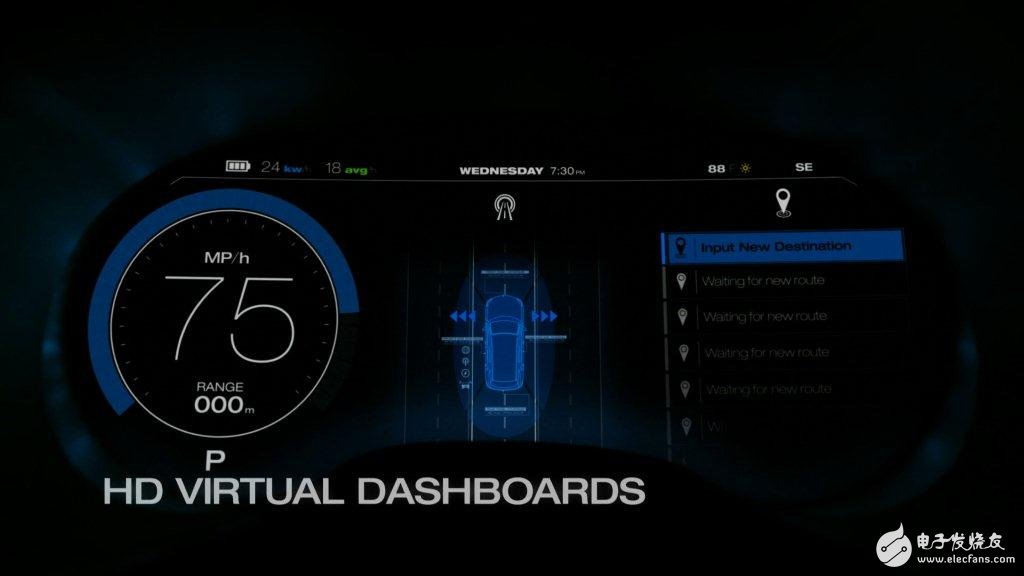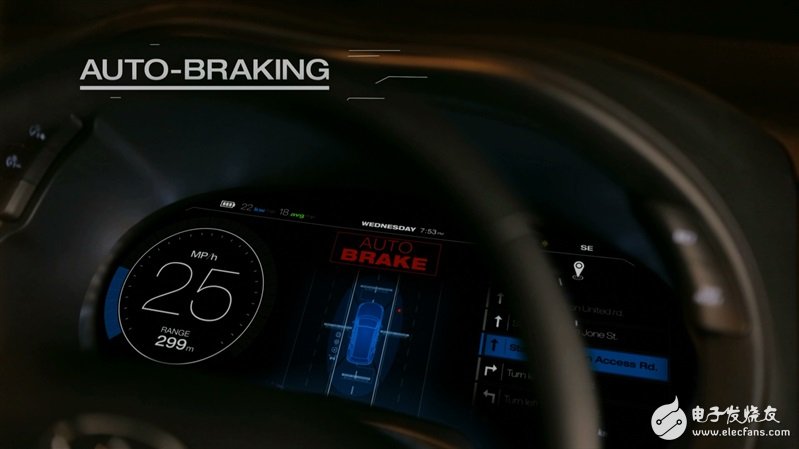Accurately predicting the future of the car has never been easy. What might it be like in the future? Among all the people who tried to predict, the filmmakers "shaped" some of the most exciting sights for the world. Sometimes their ideas are correct, and sometimes some ideas are not in line with reality. Remember the car with built-in map and tracking system driven by James Bond in 007? Take a look at today's GPS navigation system, how similar the two are.
Â

When it comes to the future of the car, we can be very certain that there are very few things, but there is no doubt that the industry will be more powerful in promoting car safety, environmental performance and driving pleasure.
In the past few decades, when we think about the various innovations in the car, it is difficult to grasp the tremendous improvements in security. Although the population of the United States today has increased by about 50% from the 1970s, the total number of deaths from traffic accidents has dropped by about 40%. Although the reasons for this decline are multifaceted, there is no doubt that one of them is the application of semiconductor technology.
Over the past 40 years, the number and variety of safety systems added to the car has continued to rise. These safety systems are silently waiting for us to help us; anti-lock braking, traction control, airbags... It has been continuously increasing. With the emergence of more technologies every year (radar, lidar [LIDAR] and vision, etc.), the pressure we face in order to ensure the safety of driving is still huge.
Whether we like it or not, the biggest safety "problem" in a car is the driver. Statistics show that in all traffic accidents, most of the causes are caused in part or in part by the driver's mistakes.
Faced with such a tough number, it is not surprising that people have high hopes for autonomous driving. Even when all vehicles are able to drive autonomously, the safety of the car needs to be continuously improved. Taking the automatic braking system as an example, it can even use the radar and vision system to perform fast braking before we realize the seriousness of a certain situation, which will bring more safety to driving. Preliminary data from US insurance agencies have shown that automatic braking systems do reduce the level of traffic accidents.
When we think of an automatic car, it is often thought of the convenience (and possibly safety) of an autonomous vehicle. However, by definition, automatic cars are designed to avoid traffic accidents (rather than let the occupants survive the accident), which opens up a new field that is expected to improve fuel efficiency, and cars that do not have serious collisions. The weight can be greatly reduced. If the vehicle is absolutely not going to encounter a traffic accident, why bother to drive around a 4000-pound steel-covered car? Significantly reducing the weight of the car will greatly improve fuel efficiency.
Â

Today, our driving range is much larger than in the 1970s - about twice as much as Americans. As road congestion (at least in many parts of the world) has not improved, this means that time spent in the car has increased. Even in the face of this situation, you can still enjoy the "inside time"! The entertainment system in the car is certainly nothing new - a search on Google reveals photos of the car phonographs of the 1950s and the 8-track tape system of the 1960s. The changing part is the range of entertainment content that drivers and passengers can enjoy – today's in-car entertainment information systems offer a large collection of music (the carrier is MP3, satellite radio system, now streaming music), we can also Get lots of other data easily. Want to know how to get to the nearest cafe? Just use GPS to check it. Need to know the latest weather information? Want to know the road conditions? All of this information is at your fingertips. Silicon crystal technology is at the heart of these innovations, and the process is just beginning. Automotive infotainment systems are now deeply “embedded†into vehicles, allowing us to easily choose the entertainment we like, with little or no fuss or confusion.
So now, let's go back to the question at the beginning, “What will the future car look like?†We are not afraid to consolidate our foundation. TI has produced a short video to share our vision for the future car. And the huge impact that semiconductor technology will have on related developments. I won't undermine the interest of watching this short film, but I will clarify one thing - there are no flying cars inside.
Of course, you must have your own unique insights into the future car, welcome everyone to communicate with us in the comments!
Visit @å¾·å·žä»ªå™¨æ–°æµªå¾®åš to watch the "TI Auto Vision" video!
Silent Type Diesel Generator,Soundproof Diesel Generator,Diesel Generator Set,Pump Generator
Jiangsu Vantek Power Machinery Co., Ltd , https://www.vantekpower.com